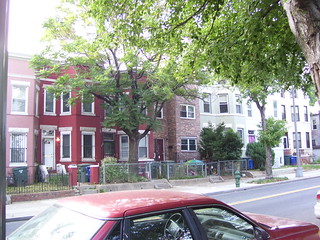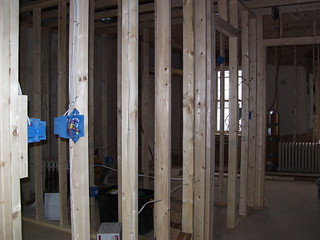 This is not about rent in a large or even small apartment building, there are different things at play. Nope, this is about the English basement, or the whole townhouse, or house or condo that you or someone you know might be renting here in the city. It might seem that the rent is too darned high, and maybe it is, but there are things that contribute to the price of your rent that you may want to be aware of.
This is not about rent in a large or even small apartment building, there are different things at play. Nope, this is about the English basement, or the whole townhouse, or house or condo that you or someone you know might be renting here in the city. It might seem that the rent is too darned high, and maybe it is, but there are things that contribute to the price of your rent that you may want to be aware of.
How much did it cost for your landlord to get the place where you live?
Some people are investors who purposely choose landlording, and some people are regular people who accidentally wandered into it. How do you accidentally become a landlord? You buy a house/condo and then 2+ years later get a job on the other side of the country or in the case of many, many people I know, you get married/partnered/pregnant and the place that worked for you as a singleton doesn’t work now. When faced with these life changes they sell or decide to rent. Some people rent at a loss, where the mortgage, insurance, fees, and whatever exceeds market rents, even if the market rents seem extra high. Some people just break even and others make a range of profit from a little to a lot.

This is not just purchase price that you can find in city records, this is also the price to make it a place habitable. A lot of people buy houses that are move in ready, maybe with a legal rental unit included. Yet there are others who bought cheap, or cheaper than now, renovated, and maybe bothered going through the hassle of permits and contractors so you could have a place that doesn’t get enough light. Or did something similar only to later rent out their whole house or condo. Good contractors cost money, so do bad contractors in their own special way. These costs get passed on to the renter if the market supports it.
Taxes
Because we live in our home our property taxes are a little above $2k. If we were renting our house out, it probably would be somewhere around $3K without the homestead exemption. Three thousand a year is $250 a month in taxes. The larger the house and nicer the neighborhood the higher the taxes.
Insurance
There was a time I was thinking of dropping the insurance on a house in Florida I own. I didn’t have a mortgage on the house, so there was no bank telling me I had to have insurance, and the darned thing was so cheap, with insurance it was worth more to me on fire.
Insurance protects the landlord, not the renter. If the property were to catch on fire the landlord would get a check, not the renter, unless the renter had renter’s insurance.
The cost of this varies. I used to pay (back when it was worth more on fire) about $900 a year. Found a cheaper insurer, which I might regret should something happen, and pay around $600 a year, $50 a month that the rent covers.
Fees
If someone were to rent out their house, there is a fee to be paid to the DC government. If they choose to leave the management to a company, the company takes their cut. If it is a condo, that fee needs to be paid, and some condo fees are in the $500-$600 a month range. Unless the landlord has to rent at a loss, those fees get passed on to the renter in the form of a higher rent.
Other stuff
There are other things a landlord is supposed to consider like vacancy ( when no one is renting and the mortgage and condo fees still need to be paid) repairs, and maintenance/ maintenance plan. If the landlord is not renting at a loss, the renter is going to cover those costs in the form of a higher rent.
Most people don’t become landlords to rent at a loss. In time those who rent at a loss don’t last long, maybe they wind up in foreclosure or maybe they rip off the band-aid and sell at a loss. Low rents, affordable rents, outside of some larger apartment buildings and beyond the wizards of the Section 8 and like subsidized programs, are not sustainable if all the costs don’t make the prospect of affordable housing profitable.
There was a time in Shaw when it seemed there were nothing but Section 8 (current name is Housing Choice Voucher Program, but hardly any really calls it by that name) houses. Landlords were making money off of those houses by making them just habitable enough to pass inspection then skimping on the maintenance. The Section 8 program also housed a lot of people who made lousy neighbors, so much so that “Section 8” was synonymous with crazy, loud, trashy, drug addicted, anti-social people. Ah the early 00s, but that’s another post for another day.
